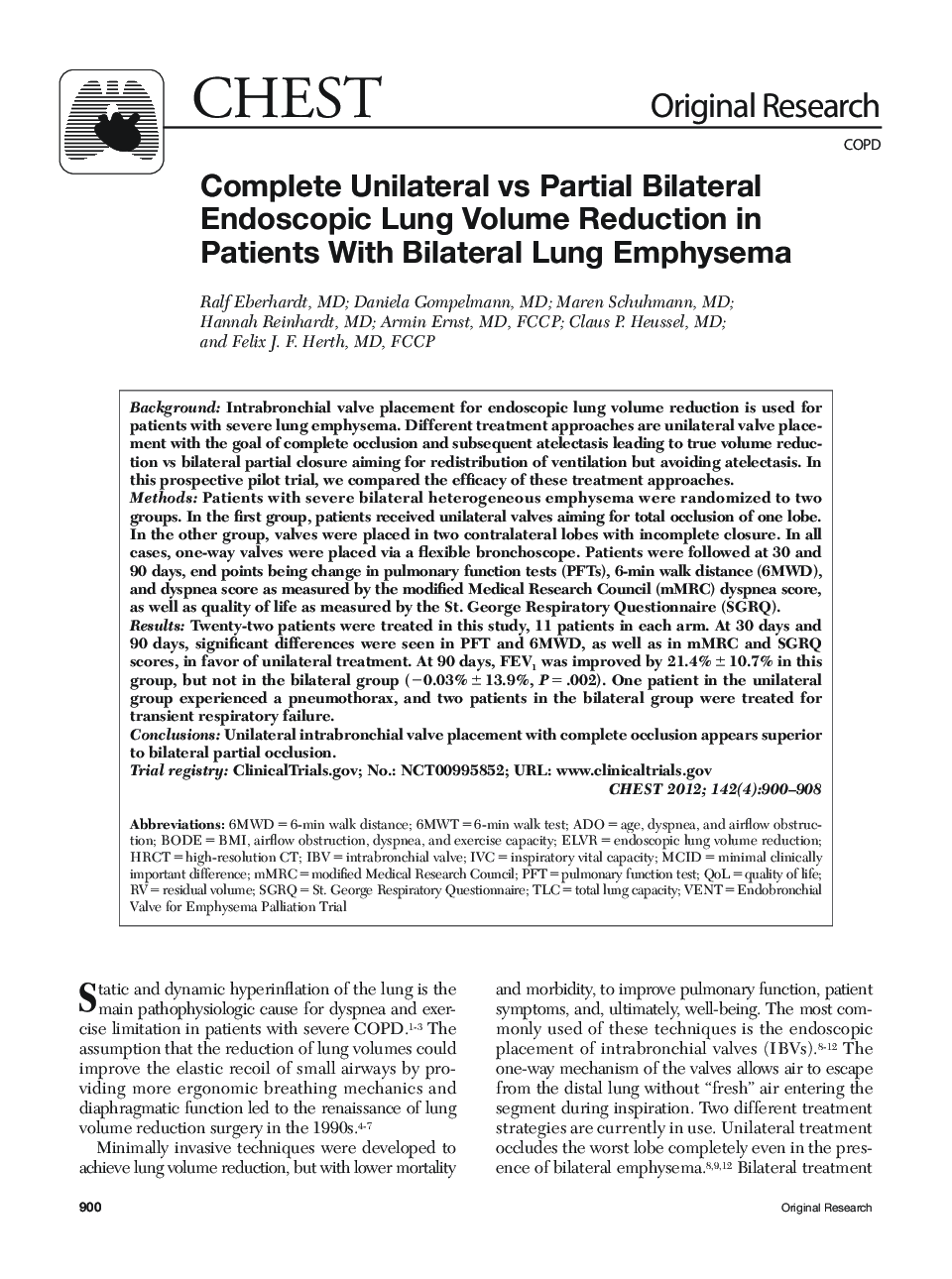| کد مقاله | کد نشریه | سال انتشار | مقاله انگلیسی | نسخه تمام متن |
|---|---|---|---|---|
| 2901695 | 1173356 | 2012 | 9 صفحه PDF | دانلود رایگان |

BackgroundIntrabronchial valve placement for endoscopic lung volume reduction is used for patients with severe lung emphysema. Different treatment approaches are unilateral valve placement with the goal of complete occlusion and subsequent atelectasis leading to true volume reduction vs bilateral partial closure aiming for redistribution of ventilation but avoiding atelectasis. In this prospective pilot trial, we compared the efficacy of these treatment approaches.MethodsPatients with severe bilateral heterogeneous emphysema were randomized to two groups. In the first group, patients received unilateral valves aiming for total occlusion of one lobe. In the other group, valves were placed in two contralateral lobes with incomplete closure. In all cases, one-way valves were placed via a flexible bronchoscope. Patients were followed at 30 and 90 days, end points being change in pulmonary function tests (PFTs), 6-min walk distance (6MWD), and dyspnea score as measured by the modified Medical Research Council (mMRC) dyspnea score, as well as quality of life as measured by the St. George Respiratory Questionnaire (SGRQ).ResultsTwenty-two patients were treated in this study, 11 patients in each arm. At 30 days and 90 days, significant differences were seen in PFT and 6MWD, as well as in mMRC and SGRQ scores, in favor of unilateral treatment. At 90 days, FEV1 was improved by 21.4% ± 10.7% in this group, but not in the bilateral group (−0.03% ± 13.9%, P = .002). One patient in the unilateral group experienced a pneumothorax, and two patients in the bilateral group were treated for transient respiratory failure.ConclusionsUnilateral intrabronchial valve placement with complete occlusion appears superior to bilateral partial occlusion.Trial registryClinicalTrials.gov; No.: NCT00995852; URL: www.clinicaltrials.gov
Journal: Chest - Volume 142, Issue 4, October 2012, Pages 900–908